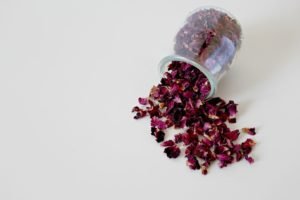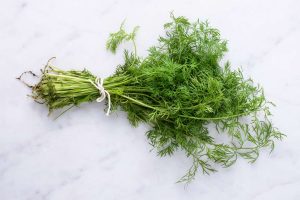The scientific name is Thymus Vulgaris, and it is in the mint family. Evergreen Is an adaptable herb and is used for ornamental, medicinal, and culinary. Is measure in sprigs that’s about half a tablespoon? The word thyme was derived from the Greek word thumus(courage); it was an antidepressant in old age, and that’s why it was claimed to give courage. There are different types of thymes, and some are:
French thyme(common):
Common thyme we meet every day.
Red creeping thyme:
They have small leaves and do have a little flavor impact. The same goes for scent. It’s perfect for ornamental purposes.
Caraway thyme.
It comes with pink flowers and grows 5-inch-tall maximum height.
In old age, thyme was used for many things, including flavoring beverages in the Roman Empire, and at the same time, it was known to give courage to people who are melancholic or shy kids.
Uses of thyme in our lives.
1. Cough syrup.
In Germany, thyme is approved to treat coughs and other lungs infection such as respiratory infections. You can try it because it’s highly recommended for lung problems.
2. Vision health.
Thyme does have vitamin A. This helps with eyesight; that is why you are encouraged to eat food staff that contains vitamin A for your eye’s health. Research shows thyme has all properties need to fight vision loss and muscle degeneration in old people. You can substitute salt with aging to help them.
3. Mouth.
Studies show thyme oil can be used to relieve oral cavity infections. The oil also was able to fight oral bacteria that have to mutate, and they do resist the antibiotics. If you have a problem with your mouth, you can add thyme as a mouth wash to keep it healthy and improve the breath; an oral pathogen scan is fought by thyme tea and also oil.
Thyme can be used to fight tooth decay, gingivitis, plaque, and bad breath because of its antibacterial and antiseptic properties of thyme.
4. Skin health.
Thyme is having antibacterial and antifungal. This will help you to fight skin infections. Mostly, people use it’s a home remedy for acne is used to heal scars, cuts, wounds, and sores. Some research shows that thyme can heal rashes and relieve burn wounds.
5. Hair rinse.
Thyme can be used for hair health and growth. It promotes hair health when they are mixed with other herbs. Fight dandruff with thyme tea by rinsing your hair with the mixture of lavender oil and thyme oil has shown positive results by improving hair growth with seven months.
6. Blood pressure.
Theme lowers blood pressure, and at the same time, it lowers cholesterol, it was tried on a rat, and it’s expected to have the same effect on humans. Substitute thyme with salt and see how it will go for you.
7. Body immunity.
Did you know thyme contains vitamin c, and for over a long-time, thyme has been known as the source of vitamin C. Vitamin C and A are known to boost body immunity and, most of the time, helps the body to fight the cold? Thyme takes part in the synthesis process of white blood cells; hence white blood cells attack diseases and other infections.
8. Fight pests.
Most of the pesticides do contain thymol either indoors or outdoors; you can use it to target bacteria and viruses; also, it can get rid of mice, rats, and many other pests. You can have them in your garden for effective use. You can use its oil droplets in your house or rooms. It will get rid of pests, including mosquitoes.
9. Scent.
Thyme is used in natural deodorant due to a good smell; most skincare use thyme to create smell in them
10. Mood changer.
As I said before in the Roman Empire in the old ages, used thyme to help shy and melancholic kids to have courage. Also, in Greek was the same. Thyme contains the active substance carvacrol, where it affects neurons. It boosts feelings. It’s advisable to use thyme on a daily basis you won’t be stressed all you will be active the whole day.
11. Headaches.
Rub a few drops of thyme oil on your forehead and wait for a little moment. Mostly it works perfectly and relieves headaches. Carvacrol is a chemical found in thyme oil and is used to suppress COX-2. Thyme will work perfectly for you if you have headaches.
12. Inflammations.
COX-2 is an inflammatory enzyme that leads to a lot of inflammatory illnesses. Studies show thyme oil does suppress COX-2. Carvacrol is the chemical found in thyme is similar to resveratrol (a chemical found in red wine very crucial to human health) is used to suppress inflammation. Carvacrol, with the help of thymol (a compound found in thyme) they are essential to fight a lot of inflammation.
13. Cancer.
Portuguese researcher shows thyme may be used to prevent cancer (colon). Thyme properties of its content show promising output. Contain lutein, beta-sitosterol, ursolic acid, oleanolic acid. Some research also shows thyme had effects on breast cancer where which increased the death cell of cancer.
14. Heart health.
Thyme extract was used on a rat, and it reduced heart rate significantly because it tempered with blood pressure. We do think it works on human lives; also, thyme does lower cholesterol levels. Some people say when you replace salt with thyme for your meals, you will feel safe from blood pressure.
15. Dyspraxia treatment.
Is it a neurological disorder that attacks movements? You can also call it Development coordination Disorder. Research proved thyme is used to reduce signs and symptoms of this disorder, especially in kids. On the other hand, thyme oil was also tasted had a great impact on fighting Dyspraxia. The output was promising to doctors, and so thyme is used to treat Dyspraxia.
Thyme is healthy and safe to use, so don’t worry, just use it for your good. It ok to apply it on your skin; use it as a mouth wash. It’s safe. It can be added to food, or one can make tea from it.



